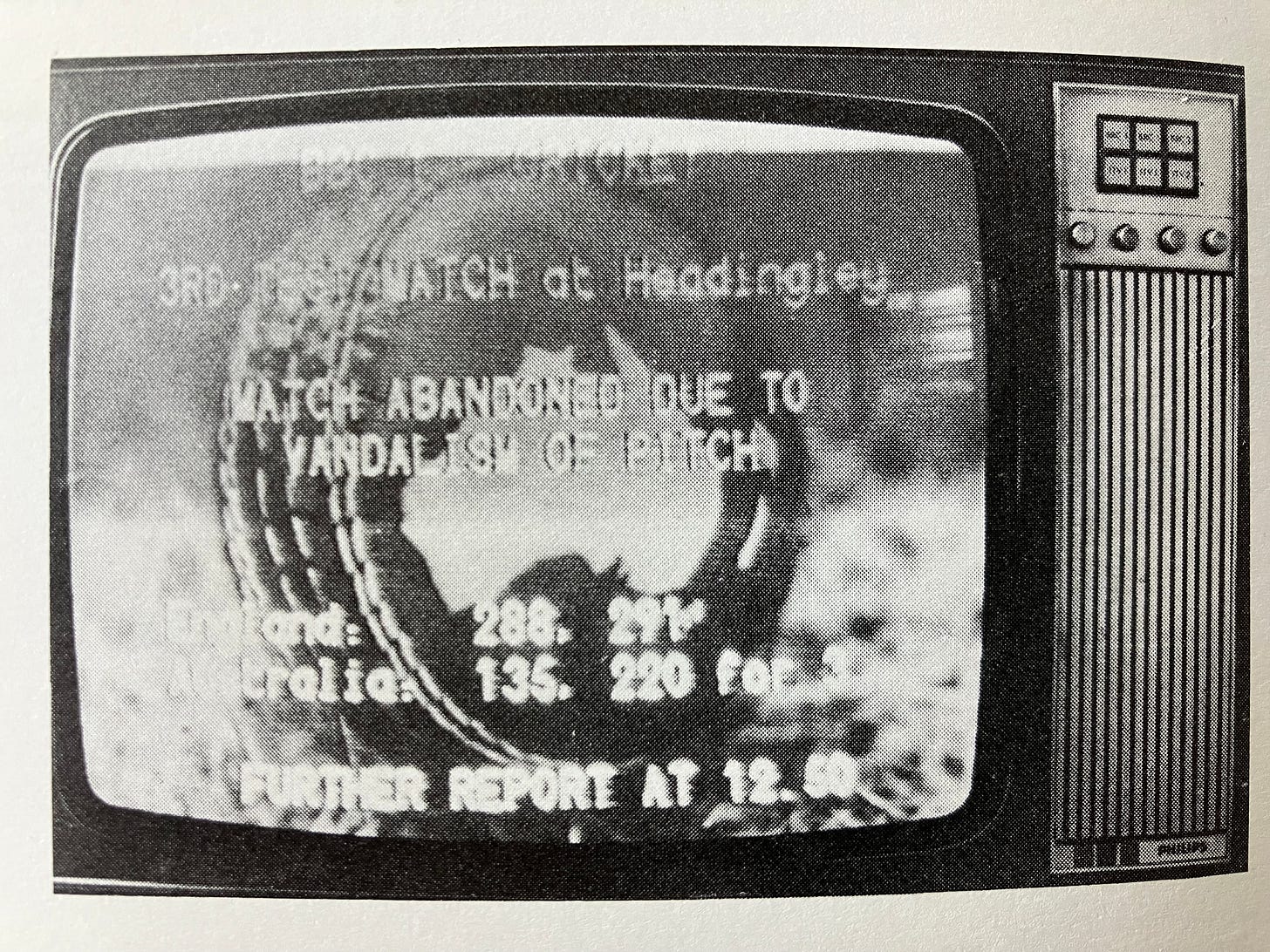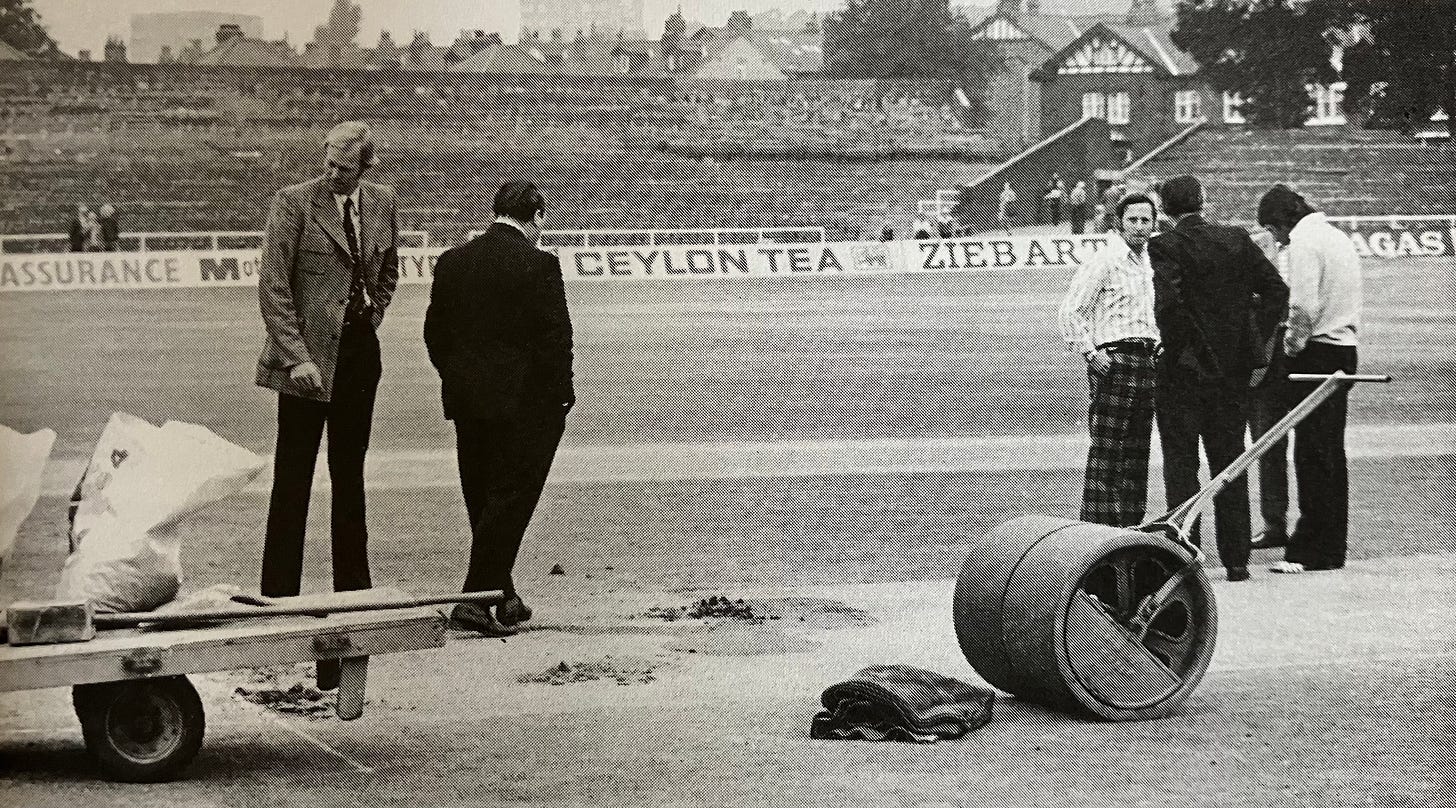George Davis is Innocent-ish
GH on the ghosts of Headingley '75
Half a century ago this evening, Australians tuning in to Channel 2 for what shaped as an intriguing final day of a potentially decisive Ashes Test were greeted with something like this. Australia, needing a further 225 to win, were three for 220. Rick McCosker was five runs short of a maiden Test century; Doug Walters was 25. But, on rolling back at covers at 6.45am, Headingley groundsman George Cawthray had found the previously blameless pitch vandalised. A tin of motor oil had been poured into great gouges in the creases at each end. At one end in particular, there was a slick three feet wide for a right-hander on a good length. From this The Times’s John Woodcock inferred that ‘the culprit knew his cricket.’
Ian Chappell, who had had had a big night in a Leeds casino with Rod Marsh and Richie Robinson, was disgruntled to be woken at 8am by a call from his manager Fred Bennett. He sobered up quickly when Bennett advised: ‘The wicket’s been damaged by vandals. We have to go straight to the ground.’ He dressed quickly - in photographs you can see his flip-flops, which contrast with his rival Tony Greig’s sports jacket and tie, and also umpire David Constant’s check pants.
Greig, who had also passed a sleepless night hoping for overcast skies next morning and been overjoyed to see them on opening the curtains, had already received the bad news from Yorkshire CCC secretary Joe Lister. He wondered at first if the pitch could be restored - not in almost a hundred years of Test cricket had a game ever been abandoned under such circumstances. Chappell himself was concerned that Australia should not be seen as ‘taking the easy way out’.
It was Constant’s colleague Arthur Fagg who cut to the chase. ‘As far as I’m concerned, you don’t have to play on another wicket,’ he told the captains. ‘We don’t feel the wicket can be repaired to what it was and have no hesitation in abandoning the game. I’ll back any decision you make along those lines.’ When Greig assented, Chappell walked in the dressing room, where his teammates were arriving. ‘Well fellas,’ he said soberly, ‘we’ve kept the Ashes.’ Not everyone felt the same. Dennis Lillee was delighted - he thought it ‘poetic justice’ after the debacle of the corresponding Test in 1972. Most, however, shared Cawthrey’s sentiments: ‘I feel bloody sick.’
Motives of the saboteurs, meanwhile, were not far to seek, for on the ground’s brick walls were blazoned a series of slogans. There was ‘G. Davis Is Innocent’ and ‘Free George Davis’, along with the curiously polite ‘Sorry It Had To Be Done.’ Constant was vexed. ‘What had we done to George Davis?’ he wondered. ‘Why should we be involved?’ The BBC’s Tony Lewis was baffled altogether: ‘Who, we all asked, is George Davis?’ It was exactly the question the intriguers had hoped would be asked.
Keep reading with a 7-day free trial
Subscribe to Cricket Et Al to keep reading this post and get 7 days of free access to the full post archives.




